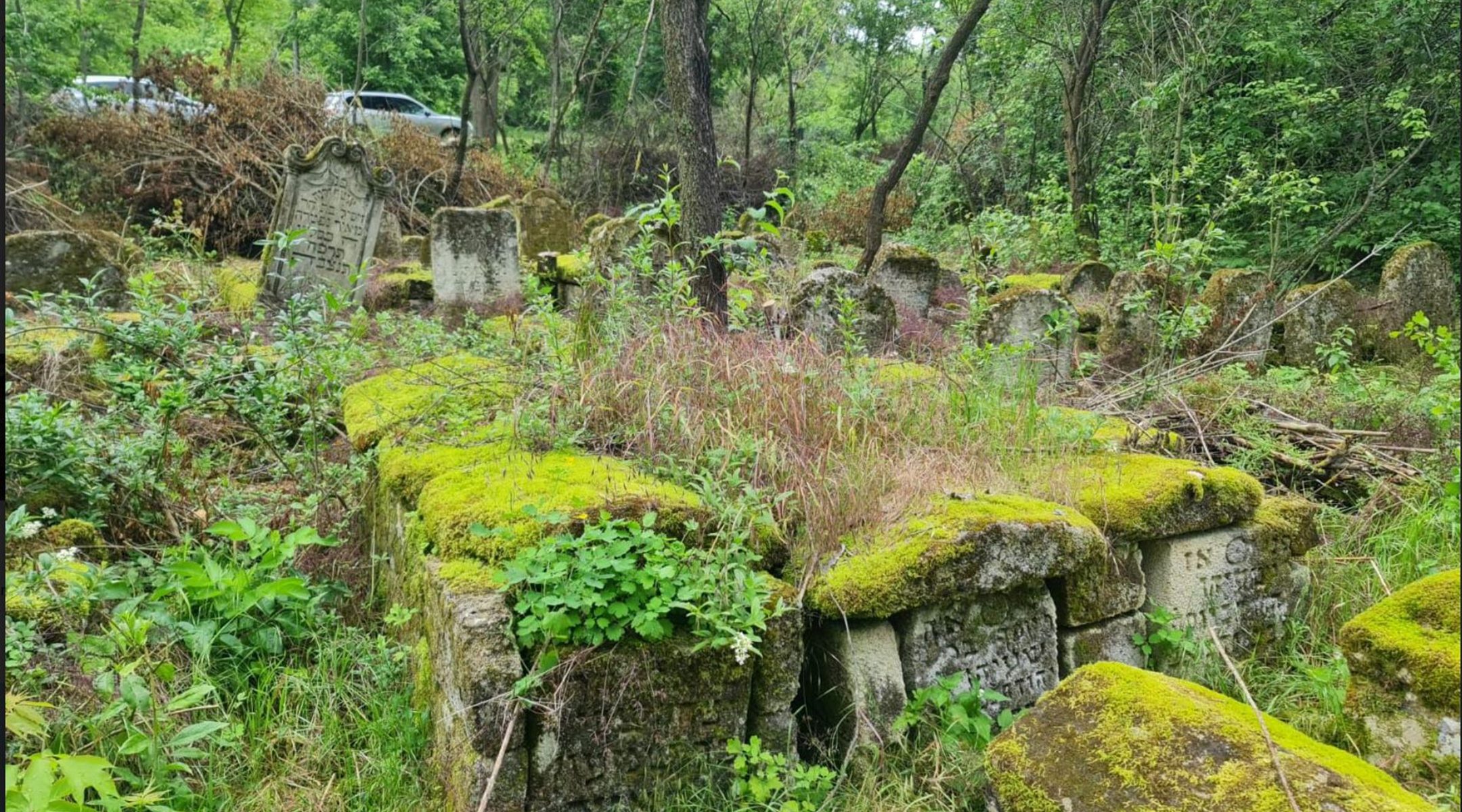(JTA) — Renovators at a Jewish cemetery in a breakaway province of Moldova discovered amid overgrown vegetation a ritual burial preparation facility that was assumed to be destroyed.
The discovery earlier this month in Raşcov, a municipality in the Pridnestrovian Moldavian Republic, also known as Transnistria, came as a pleasant surprise to Pinchas Zaltsman, who lives in Chisinau, the capital of Moldova, and who was leading a renovation project at the cemetery.
“This surprising discovery gives a feeling of connection through the ages, to the illustrious Jewish past of the region,” he told the Jewish Telegraphic Agency.
The structure that was uncovered was last used in 1931. It is a beit tahara — a facility that is located at some Jewish cemeteries where the bodies are prepared according to halacha, Orthodox Jewish law. Its survival is remarkable as Soviet authorities regularly dismantled them to use as construction material. It has a wooden roof, mud walls and a large stone slab at its center.
Transnistria, where today about 400,000 people live, used to have tens of thousands of Jews and 20 synagogues. Most were murdered in the Holocaust and most of those who had survived left during the era of Soviet Union communism or after its fall. Today only a few dozen Jews remain, and their community’s many cemeteries and heritage sites have largely fallen beyond repair.
Transnistria seceded from Moldova in the early 1990s in a civil war. It is not recognized internationally as an independent nation but exercises its own sovereignty over its territory with logistical backing from Russia.
JTA has documented Jewish history in real-time for over a century. Keep our journalism strong by joining us in supporting independent, award-winning reporting.






